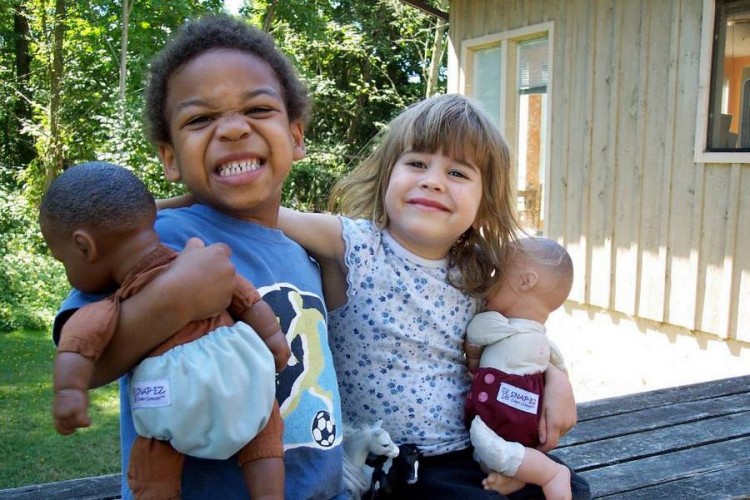What I Want You to Know About My Son’s Fetal Alcohol Spectrum Disorder
Our 13-year-old son was adopted at the age of 4 weeks old. We knew he had been exposed to alcohol throughout the entire pregnancy, but we were optimistically hopeful that he would escape the effects of alcohol. He was diagnosed with static encephalopathy alcohol exposed (which falls under the fetal alcohol spectrum disorder umbrella) at age 2 and a half. This is our story.
Fetal alcohol spectrum disorder (FASD) can manifest itself in a variety of ways, person to person. At its core, it is permanent brain damage caused by prenatal alcohol exposure. Here are just some examples of what we deal with on a daily basis.
Imagine:
Telling your child he can’t have a granola bar. This sets off a four-hour rage that ends only when he throws a rock hard enough at the van to shatter the back windshield. The child doesn’t understand why you’re upset. It’s not his fault. He didn’t mean to break the window. It just meant to throw rocks at it. The child never “owns up” to breaking the window because he truly sees it as an accident. He cannot see that he caused the broken window.
Imagine:
Telling your child to clear the table, his one and only household chore. He might do it. Or he might knock down chairs, throw any small item within reach and go to his room and scream for an hour.
Imagine:
Early in 2015, my son with FASD had an appointment at the children’s hospital. They asked his birthday. After thinking for a moment, he finally came up with September 3. When asked the year, he couldn’t answer. I told him he was born in 2002. Now more than six months later, if asked when his birthday is, he answers “2002.” Because that was the “right” answer once, he is convinced 2002 is the answer. Why has this one answer stuck when it takes him so long to lean other things? Who knows? I’m sure eventually it will fade, but right now, it’s stuck in his brain.
Imagine:
A 13-year-old who still mixes up the words bagel and doughnut, ketchup and syrup, watermelon and pineapple. See the pattern? Similar items…but the wrong word. These are just a few examples.
Imagine:
You see your child about to brush his teeth with a tube of yeast infection cream. You take it away and your child gets angry and yells, “Then what am I going to use to brush my teeth?” He remains mad at you for the rest of the evening for taking away his “toothpaste.” He can’t see you were protecting him from using yeast infection cream. He only sees you asked him to do something (brush his teeth) then got in his way when tried to do it.
Imagine:
Your son looks perfectly “normal.” One good days, there are giggles and laughs. He does his homework. He joins the family for dinner. He goes to school. His teachers expect him to do his work and to participate in class. And on a good day, he does.
Imagine:
A 13-year-old son who still loves to cuddle. Who is very affectionate and well attached. Who can out-Lego and out-puzzle my kids with no special needs. Who is an artist. Who is great with animals and babies and toddlers. Who is creative.
Imagine:
More “bad” days than good ones.
I don’t share these stories to demean my son. He is fiercely loved and we offer him all the support we can. I spend many hours every week advocating for him in the form of phone calls and mountains of paperwork. I share this so you can get a glimpse of the realities many parents of alcohol-affected kids are living with.
The world doesn’t understand fetal alcohol spectrum disorder. The behaviors my son exhibits are not rebellion. They aren’t something more love, or more discipline, or more rules or fewer rules are going to solve. His brain was permanently affected by the alcohol his birth mother consumed during her pregnancy. Nothing can change that. He can know something one day and forget it the next. It is called being on the fetal alcohol spectrum.
My son is handsome and strong.
My son is the face of fetal alcohol spectrum disorder.
Follow this journey on Little Earthling Blog.
The Mighty is asking the following: What’s one thing people might not know about your experience with disability and/or disease, and what would you say to teach them? If you’d like to participate, please send a blog post to community@themighty.com. Please include a photo for the piece, a photo of yourself and 1-2 sentence bio. Check out our Share Your Story page for more about our submission guidelines.


